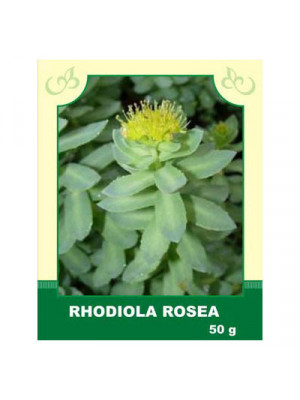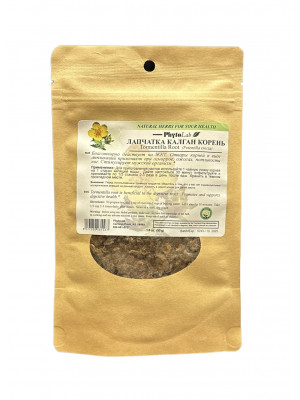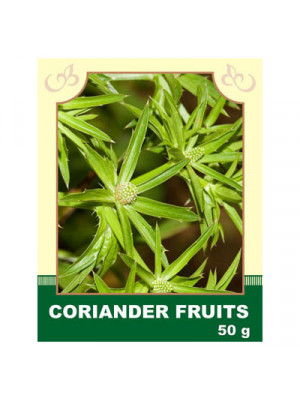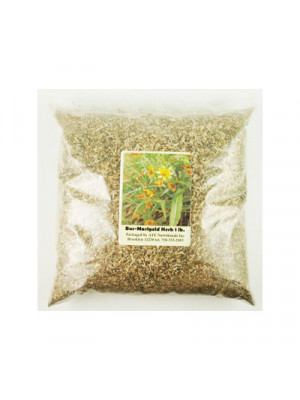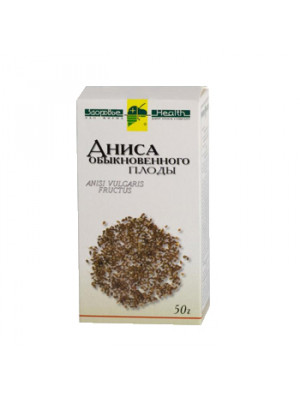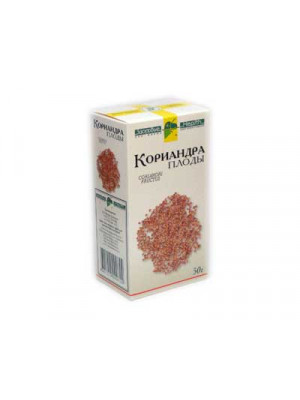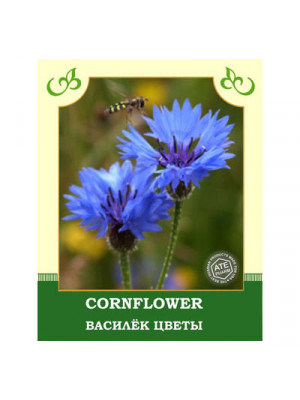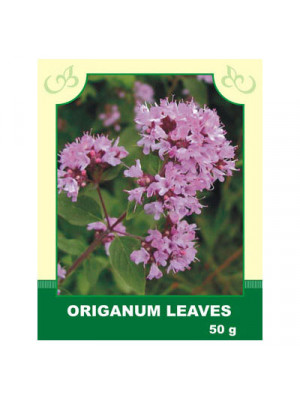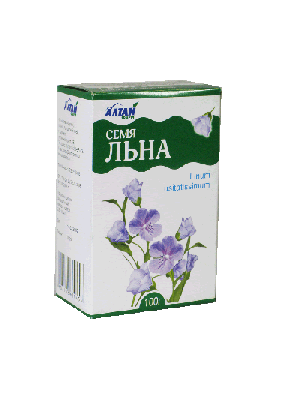Herbs
Internally, it is taken as a means of stimulating the central nervous system, for increased fatigue, during increased mental stress, in depressive states in alcoholism patients, to increase endurance on long hikes, for hypotension, insomnia, impotence, and sexual weakness.
Method of application and dosage: Prepare a tincture on 40% alcohol in a ratio of 1:5, infuse in a dark place for 3-4 weeks, strain, and take 15 drops 3 times a day 15-20 minutes before meals. The infusion is prepared by pouring 10 g of raw material with 200 ml of boiling water, infusing for 4 hours, straining, bringing to the original volume with boiling water, and taking 1/2 cup 2-3 times a day.
Contraindications: individual intolerance, with sharply expressed excitability, hypertensive crisis, febrile conditions. Overdose is not allowed. It is not recommended to take it at night or late in the evening.
$6.99Internally taken as a binding, anti-inflammatory, cholagogue, and hemostatic agent, for intestinal and uterine bleeding, liver and gallbladder diseases, duodenal ulcer, enterocolitis, and skin conditions.
Method of application and dosage: 1 tablespoon of raw material is poured with 200 ml of boiling water, heated in a water bath for 30 minutes, infused at room temperature for 10 minutes, strained, squeezing out the remaining raw material. The finished infusion is brought to the original volume with boiled water. Take 2 tablespoons 4 times a day before meals. Externally, it is used for gargling in angina, gingivitis, and toothache, as well as for burns, oozing eczema, and other skin diseases.
Contraindications: individual intolerance.
$9.99Internally, the infusion improves digestion and is used for gastritis, stomach ulcers, and duodenal ulcers. Widely used in cooking as a spice and for preserving food.
Method of application and dosage: Steep 1 tablespoon in a cup of boiling water or hot milk for 1 hour, strain, sweeten to taste. Take 1/4 cup 4 times a day, hot.
Contraindications: individual intolerance.
$6.99- Bur-marigold is widely used in different ways. The herb is rich in tannins, bitters, volatile oil, vitamin C, carotin, iron, chrome, aluminum, copper and manganese. Bur- marigold can be taken internally and externally. The properties of the herb are numerous: sudorific, anti-inflammatory, diuretic, vitaminous, anti-allergic and sedative. Bur-marigold is of great help for metabolism disorders, digestion, gastrointestinal illnesses and skin inflammations. Use. Bur-marigold is used as preventive for influenza or cold, used for treatment of swelling pain at the throat, fever among infants, fear of cold weather. In some countries they use it for enteritis, flatulence, diarrhea, appendicitis, for sprains, contusions, chronic ulcers. The herb also helps stop wound bleeding and is good for piles, chronic ulcers, various skin diseases.$17.99
Internally, it is an effective remedy for insufficient milk during lactation. It has antiseptic and expectorant effects and can be used for bronchitis, wet cough, and other respiratory tract pathologies. Additionally, it helps normalize liver function. It is applied to diseases of the bladder, urinary tract, and can help get rid of kidney stones.
Method of application and dosage: 1 teaspoon of dry seeds is poured into a cup and filled with boiling water. The tea is infused for 10 minutes, then strained and consumed half an hour after eating. You can have 2-3 cups per day.
External use: used for inhalations.
Contraindications: digestive system problems, pregnancy, individual intolerance.
$7.99- The part of the world, which regularly cultivates coriander, is India, China, Malaysia, Thailand, the US and European countries. Coriander is rich in vitamins and minerals. Coriander contains calcium, phosphorous, iron, few vitamins from Vitamin B-complex group and Vitamin C. This is the reason why it is freely advised in any condition related to avitaminosis. Coriander helps improving digestion. It helps in stimulating hunger to patients who are anorexic. Coriander helps relieving distention in addition. The properties of coriander are cholagogic, antiseptic, analgetic, expectorant, diuretic and many others.$7.99
Internally, the decoction is taken for headaches, neuralgia, various forms of neurosis, rheumatism, gout, colds, indigestion, inflammatory processes in the intestines and stomach, jaundice, liver and spleen diseases (if overloaded with large doses of toxins), diarrhea, diseases of the urinary tract, gynecological and infectious diseases, and internal bleeding.
Method of application and dosage: Steep 1 teaspoon of bark in 200 ml boiling water, let it infuse until cool, strain, squeezing out the plant material. Bring the resulting infusion to the initial volume with boiled water, and take 1 tablespoon 4-5 times a day.
Externally, willow bark is used as a mouthwash for stomatitis, periodontosis, angina, and inflammatory processes in the oral and throat cavity. It is also used in baths for varicose veins and for washing wounds and ulcers on the body.
Contraindications: Pregnancy, lactation, individual intolerance. It should not be used if aspirin, laxatives, cold and cough remedies, antacids, vitamins, and amino acids are used in treatment.
$6.99Internally, the infusion is used for colds, cough, constipation, stomach pains, kidney and bladder diseases, as a diaphoretic, and as a remedy for palpitations and headaches.
Method of application and dosage: Infuse 1 teaspoon of violet for 1 hour in closed dishes in 1 glass of boiling water, cool, strain. Take 1/2 cup 3 times a day 15-20 minutes before meals.
Externally, the infusion of flower petals is used as eye drops and compresses for certain eye diseases. Crushed plant material is applied to wounds to promote healing.
Contraindications: Individual intolerance. The plant is weakly toxic, so caution should be exercised with dosage.
$6.99
Description. Oregano herb contains volatile oils, tannins, ascorbic acid. Oregano is usually thought of as a culinary herb, but it has been used medicinally for thousands of years. Oregano is a powerful antiseptic; it also has calming, diuretic, cholagogic properties. Use. Oregano is very useful for indigestion, bloating, flatulence, coughs, urinary problems, bronchial problems, headaches, swollen glands, and to promote menstruation. It is also used to relieve fevers, diarrhea, vomiting, and jaundice. Unsweetened tea can be used as a gargle or mouthwash. Externally, Oregano leaves can be pounded into a paste. This paste can then be used for pain from rheumatism, swelling, itching, aching muscles, and sores. For tired joints and muscles, put a handful of Oregano leaves in a coffee filter, mesh bag, or cheesecloth bag and run steaming bath water over it. Allow it to steep in the tub with you as you relax in the warm, fragrant water.
Attention! Do not take oregano while being pregnant.
Attention! Before using any herbal products, make sure that you have full knowledge of how the herb works and any adverse reaction it may cause.$6.99- Description. The history of flax seeds therapeutic use dates back to the times of Hippocrates. In his book Corpus Hippocraticum he described beneficial effect of flax seeds on human organism. Flax seed provides nutritious oils required for good body functioning. It is best taken as the ground seed, especially over long periods of time. Rich in alpha-linolenic acid, one to three tablespoons a day can help to protect the heart and blood vessels and promote healthy bowel evacuation for prevention of toxic accumulation. It is high in mucilage, which helps to protect the entire digestive tract, respiratory tract and bile duct. The ground seed can be added to cereal or muesli. Water intake should be increased, as the seed absorbs liquid.
Use. These are some positive effects of flax seeds on health: 1.Lowered blood cholesterol levels. 2. Lowered high blood pressure. 3. Increased energy, vitality, and stamina. 4. Increased sense of calmness under stress. 5. Reduced threat of blood clots. 6. Protection against cancers, particularly hormone sensitive cancers such as breast and prostate. 7. Better regulation of blood sugar levels. 8. Eases inflammatory tissue conditions, including arthritis. 9. Alleviation of dry skin, eczema and psoriasis. 10. Enhanced immune system. 11. Increased metabolic rate with a positive impact on weight management. 12. Helps with Attention Deficit Disorder. 13. Natural laxative (promotes digestion). 14. Improves function of kidney and helps remove liquid from body.
Attention! Before using any herbal products, make sure that you have full knowledge of how the herb works and any adverse reaction it may cause.$6.99


